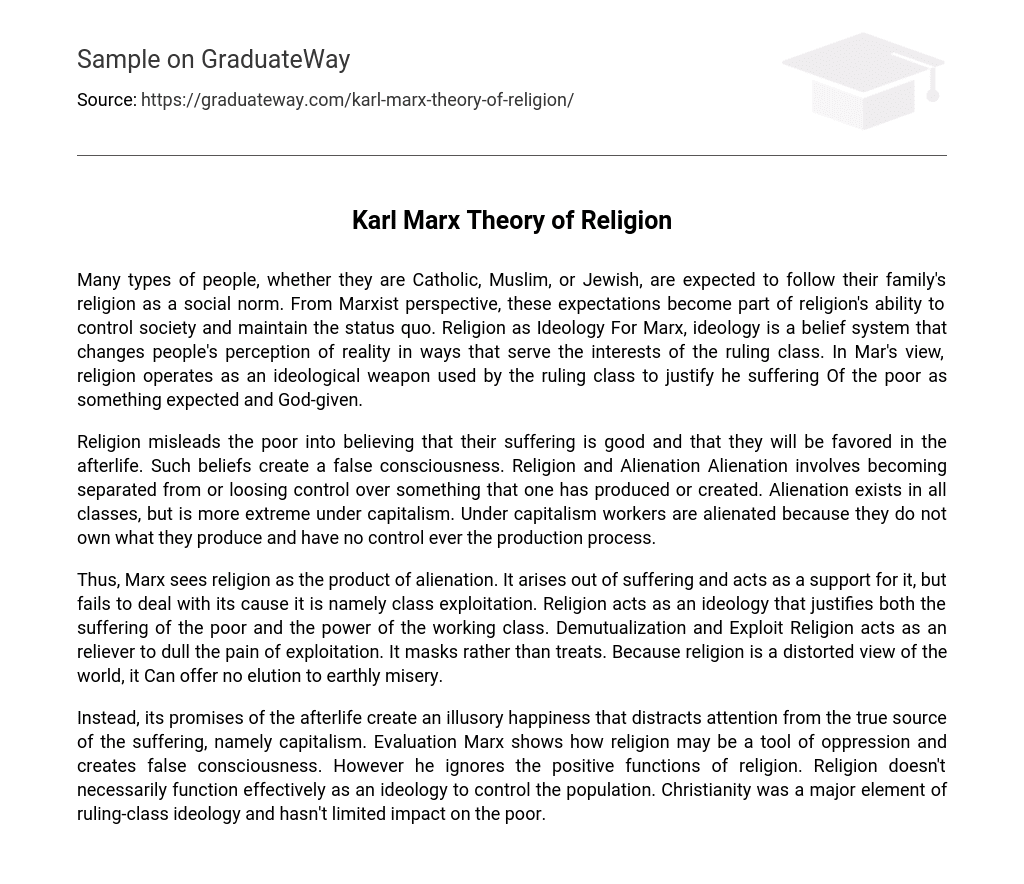The expectation for individuals to adhere to their family’s religion as a social norm is applicable to people of various faiths, be it Catholic, Muslim, or Jewish. From a Marxist standpoint, these expectations contribute to the religion’s capacity to manage society and uphold the existing order. Marx regarded religion as an ideology, characterized by a belief system that influences people’s understanding of reality in a manner that aligns with the ruling class’s interests. In Marx’s perspective, religion functions as an ideological instrument utilized by the ruling class to rationalize the suffering of the impoverished as an anticipated and divinely ordained occurrence.
Religion deceives the impoverished by teaching them that their suffering is virtuous and will be rewarded in the afterlife. This belief creates a false awareness. Additionally, religion contributes to alienation, which is the feeling of detachment or loss of control over something one has personally created. Alienation exists among all social classes but becomes more intense under capitalism. In a capitalist system, workers feel alienated because they do not own the results of their work and have no control over the production process.
Marx argues that religion arises from suffering and serves as a support for it, yet fails to address the fundamental source of suffering: class exploitation. Religion functions as an ideology, justifying the suffering endured by the impoverished and the dominance held by the laboring class. It offers only temporary respite from exploitation, masking and dulling the pain instead of providing a true remedy. With its distorted view of reality, religion cannot offer any deliverance from earthly anguish.
The concept of the afterlife in religion generates an illusory feeling of joy, redirecting focus away from the true source of suffering – capitalism. Marx contends that religion can be employed as a means of subjugation, resulting in distorted awareness. Nonetheless, he overlooks the potential positive contributions that religion can make. Religion is not invariably successful as a method for governing the masses. For instance, Christianity has served as a prominent component of ruling-class ideology and has had far-reaching effects on impoverished individuals.





